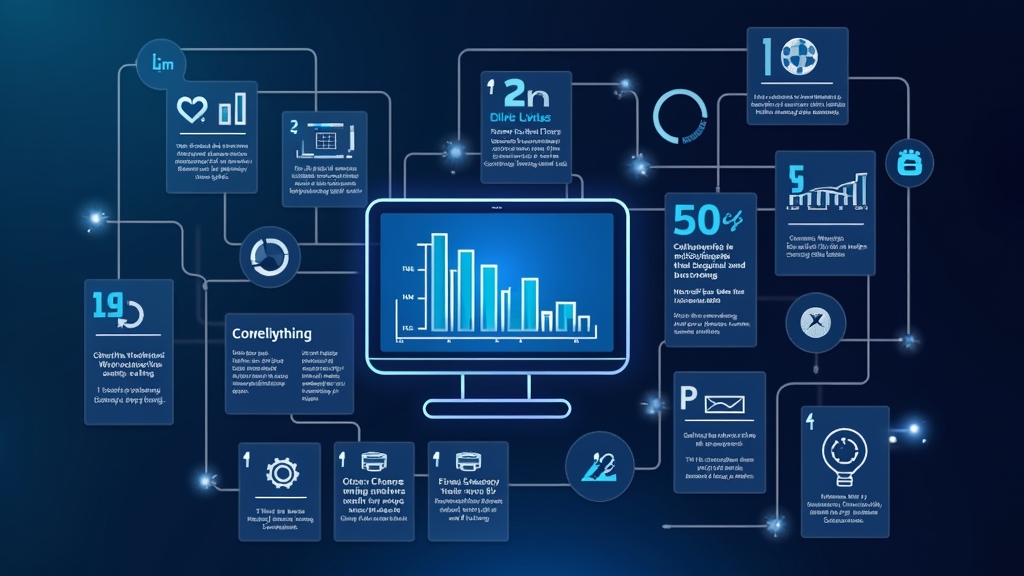Marketing Strategies Enhanced by Real-Time Analytics Dashboards
Introduction
In today’s fast-paced digital world, understanding your audience and their behaviors is crucial for successful marketing. Real-time analytics dashboards play a vital role in this process, offering immediate insights that help you make informed decisions. By leveraging these tools, you can track performance metrics as they happen, allowing for quick adjustments to your strategies. This article will explore the importance of real-time analytics in marketing and how dashboards can enhance your overall strategy.
Understanding Real-Time Analytics
Definition and Key Features
Real-time analytics refers to the immediate processing of data as it becomes available. This means you can view and analyze information instantly rather than waiting for reports or summaries. Key features include live data updates, customizable visualizations, and user-friendly interfaces that allow marketers to monitor multiple metrics simultaneously.
Benefits of Using Real-Time Analytics in Marketing
Using real-time analytics offers several benefits for marketers. First, it enhances decision-making by providing up-to-the-minute data on customer behavior and campaign performance. Second, it allows for rapid response to market changes or consumer trends. Lastly, real-time insights help optimize marketing efforts by identifying what works best at any given moment.
Types of Real-Time Analytics Dashboards
Performance Dashboards
Performance dashboards focus on key performance indicators (KPIs) related to specific campaigns or overall marketing efforts. They provide a snapshot of how well your strategies are performing against set goals.
Operational Dashboards
Operational dashboards offer a broader view of daily operations within your marketing team. They track ongoing processes and workflows, ensuring everything runs smoothly while highlighting areas needing attention.
Strategic Dashboards
Strategic dashboards are designed for long-term planning and analysis. They aggregate data from various sources to provide insights into market trends and customer preferences over time.
Key Metrics to Track with Real-Time Analytics Dashboards
Customer Engagement Metrics
Tracking customer engagement metrics such as website visits, click-through rates (CTR), and time spent on pages helps you understand how users interact with your content.
Conversion Rates and ROI
Monitoring conversion rates allows you to evaluate the effectiveness of your campaigns in turning leads into customers. Additionally, calculating return on investment (ROI) helps determine which strategies yield the best financial results.
Social Media Performance Indicators
Social media platforms are essential for modern marketing strategies. Tracking likes, shares, comments, and follower growth gives insight into brand awareness and audience engagement across these channels.
Implementing Real-Time Analytics Dashboards in Your Marketing Strategy
Choosing the Right Tools and Software
Selecting suitable tools is critical when implementing real-time analytics dashboards. Look for software that integrates seamlessly with existing systems while offering customizable features tailored to your specific needs.
Integration with Existing Marketing Platforms
Integrating real-time analytics with current marketing platforms ensures smooth data flow between systems. This integration enables comprehensive analysis without disrupting established workflows or processes.
Case Studies: Successful Use of Real-Time Analytics Dashboards in Marketing
Example 1: Boosting Campaign Performance
A popular e-commerce brand used real-time analytics dashboards during a product launch campaign. By monitoring customer interactions live, they quickly adjusted their messaging based on what resonated most with shoppers—resulting in a 30% increase in sales compared to previous launches.
Example 2: Enhancing Customer Experience
A travel agency implemented an operational dashboard that tracked customer inquiries across various channels—phone calls, emails, social media messages—in real time. This allowed them to respond faster than competitors while improving overall satisfaction ratings significantly within just three months.
Challenges and Considerations
Data Overload and Interpretation
While having access to vast amounts of data is beneficial; it can also lead to information overload if not managed properly. Marketers must focus on relevant metrics instead of getting lost among countless numbers that may not impact their strategies directly.
Maintaining Data Privacy and Security
With increased reliance on data comes responsibility regarding privacy concerns surrounding personal information collection practices under regulations like GDPR or CCPA laws governing user consent rights when utilizing analytical tools effectively without compromising security measures should always be prioritized throughout implementation phases too!
Conclusion
The Future of Marketing with Real-Time Analytics
As technology continues evolving rapidly alongside consumer expectations shifting towards instant gratification experiences; integrating real-time analytics into your marketing strategy will become increasingly essential moving forward! Embracing these innovative solutions empowers businesses like yours not only stay competitive but also foster deeper connections through personalized engagements driven by actionable insights derived from accurate assessments made possible via effective utilization techniques discussed herein today!
📢 Explore More: Continue Your Journey!
If this article helped you understand more about enhancing your marketing strategy through technology-driven solutions like real-time analytics dashboards check out How Data-Driven Decisions Transform Marketing Strategies! It covers powerful insights helping you understand how leveraging data effectively can elevate your business success even further.
👉 Click here to read more!














![NEEWER 55W 18"/45cm Ring Light Kit [New Version], 5600K Dimmable ...](https://m.media-amazon.com/images/I/414QLqvZWLL._AC_.jpg)








